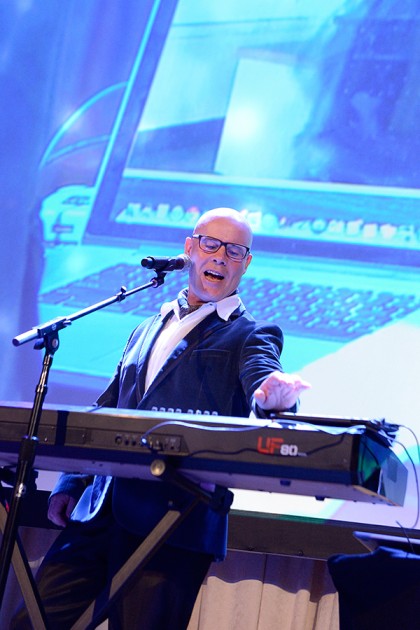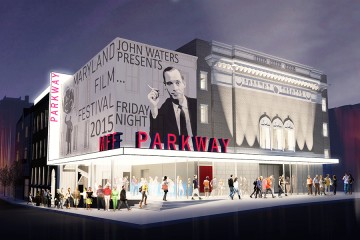Last week, 400 advocates of the university and medical system gathered for the third biennial Johns Hopkins Leadership Summit, working side by side to explore the opportunities and challenges facing the Hopkins community.

Image caption: Thomas Dolby, Homewood Professor of the Arts
An invitation-only event, the Summit is an opportunity for members of the boards of trustees, advisory councils, the Alumni Council, and Hopkins Parents Council, among others, to engage in meaningful discussions with faculty and staff leaders on some of the university's most important goals, particularly those that are major priorities for the current fundraising campaign, Rising to the Challenge.
The Summit began on Thursday with a celebratory evening marking the midway point of the Rising to the Challenge campaign, which has raised $2.7 billion from 187,000 people, 60 percent toward the $4.5 billion goal.
"Now, over halfway through this campaign, we have already seen extraordinary results, whether witnessing the catalytic effects of our Bloomberg Distinguished Professorships, the growing impact of our signature initiatives, or the fruits of our investment in the future of the arts at Hopkins and in Baltimore," Johns Hopkins University President Ronald J. Daniels said.
The Ralph S. O'Connor Recreation Center was briefly transformed into a concert venue when Thomas Dolby, the new Homewood Arts Professor, provided a special performance of his 1980s pop hit "She Blinded Me With Science."
University Board of Trustees Chair Jeffrey Aronson acknowledged Amy and Roger Faxon, whose gift was joined by a grant from the Andrew Mellon Foundation to create the Interdisciplinary Program in Music—and allowed Johns Hopkins to recruit Dolby. "Their generosity was the spark that today is catalyzing the integration of the arts into academic life," Aronson said.
At Friday's Summit, Daniels' morning address focused on the Hopkins entrepreneurial spirit.
"This spirit is allowing us to lead through change," Daniels said. "It is fueling our work together—as university and volunteer leaders, administrators and faculty, staff and students—to reduce barriers and increase support for innovative thinking on the one hand and, on the other, to inspire and ignite new approaches to challenges we are rising to meet."
Summit participants took part in creative and strategic dialogues on many of the pressing global issues that the Johns Hopkins community is addressing during a series of eight working sessions. Discussions ranged from the Homewood undergraduate experience, to multidisciplinary initiatives, to new frontiers on cancer research, to humanitarian crises and response, to innovating health care for the next 125 years. These small-group working sessions were designed to inform volunteer leaders about the university's priorities and provide a forum to energize volunteers to advocate on behalf of the university in their personal and professional networks.
The work achieved through the Summit will be carried forward over the next two years through the 75 advisory councils and volunteer boards at Johns Hopkins that guide individual schools, departments, and programs.
"Together," Daniels said Friday, "I know we will continue our trajectory of innovation and impact, and it is thanks in no small measure to those gathered today that we look to the future with the same boundless optimism with which we began."
Posted in University News
Tagged philanthropy, president ron daniels








